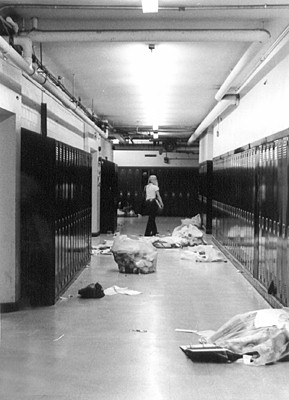All Nonfiction
- Bullying
- Books
- Academic
- Author Interviews
- Celebrity interviews
- College Articles
- College Essays
- Educator of the Year
- Heroes
- Interviews
- Memoir
- Personal Experience
- Sports
- Travel & Culture
All Opinions
- Bullying
- Current Events / Politics
- Discrimination
- Drugs / Alcohol / Smoking
- Entertainment / Celebrities
- Environment
- Love / Relationships
- Movies / Music / TV
- Pop Culture / Trends
- School / College
- Social Issues / Civics
- Spirituality / Religion
- Sports / Hobbies
All Hot Topics
- Bullying
- Community Service
- Environment
- Health
- Letters to the Editor
- Pride & Prejudice
- What Matters
- Back
Summer Guide
- Program Links
- Program Reviews
- Back
College Guide
- College Links
- College Reviews
- College Essays
- College Articles
- Back
Unfairly Underfunded Schools MAG
Picture a teenage girl from a low-income family that consists of one parent and two younger siblings. She works hard to maintain good grades and helps support her family by working a part-time job late into the night – and even later when she finally gets to her homework. Should this girl, who puts her all into school and family, be given any fewer chances to succeed than another student?
The school this girl attends can barely afford to keep its teachers, with many lured away by the promise of better pay. She can't go anywhere else; this is the best school in her district and other districts won't have her. The textbooks are years out of print, the rooms are freezing in the winter, the classes are haphazard and essentially teach her nothing unless she fights for her education tooth and nail. She'll never attain a scholarship in this broken system and without financial aid, she won't be able to attend college.
Does this situation sound extreme? It is reality for many students here in the United States. As fellow citizens, we must take action to correct this vicious cycle.
Writer and education activist Jonathan Kozol visited schools in desperate situations all over the U.S., and recorded his findings in his book Savage Inequalities. He quotes one student from East St. Louis, Missouri, who says that though she often sees crimes from her area on local TV, the media never shows the crimes committed by the government that keep black people segregated in impoverished sections of the city. Furthermore, when another student tried to improve her education by switching to a school in a different section of the city, she was refused. “The reason, she was told, is that we're in a different ‘jurisdiction.' If you don't live up there in the hills, or further back, you can't attend their schools … the two things, race and money, go so close together – what's the difference? I live here, they live there, and they don't want me in their school.”
Who has the right to dictate another's worth based on their financial situation? On their race? These students deserve opportunities equal to other students, but that's not the message they're receiving. Right now, all they see is that they're worth exactly what they get and they'll never have the opportunity to do better. So why try?
The Declaration of Independence states that “whenever any Form of Government becomes destructive of [our unalienable rights], it is the Right of the People to alter or to abolish it.” We need to change the ways that state governments deal with educational inequality, and we can start by funding schools that need it most.
The principal of one of the schools Kozol visited explained, “We're losing thousands of dollars in our heating bills … we've had fire damage but I see that as a low priority. I need computers – that's a low priority as well.” After a modest list of improvements, he added that he could afford all this, “if [he] had an extra $20 million.” If repair of fire damage is considered a low priority, clearly this school isn't receiving adequate funding. By equalizing funding among schools, an essential step can be taken toward giving these students what they require to succeed.
But how can we do this? Public school funding primarily is a percentage of the property taxes of the residents of that district. Therefore, low-income areas will naturally have less to give schools, forming a vicious cycle as educational quality for the district's students is decreased, along with their future earning potential.
A more fair and equitable solution would be to take the collective taxes from the entire city and allocate that equally among all schools, so students are granted the same opportunities. Furthermore, schools that are struggling should be able the request additional funds or resources.
Picture a girl from a low-income household working hard to attain good grades. Despite her financial situation, she has the same opportunities as any other student her age. Her perseverance allows her to attend college and get a good job, ultimately providing a better life for her children. She may change the world if given the opportunity. Isn't that a future worth fighting for?

